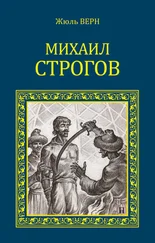| It was not spoken of officially, it is true, nor even officiously, since tongues were not free; but a few exalted personages had been informed, more or less exactly, of the events which had taken place beyond the frontier. |
Разумеется, официально на эту тему разговоров не велось, - и даже полуофициально, поскольку "приказа" развязать языки не давалось, - однако кое-кто из высших чинов был более или менее точно осведомлен о событиях, происходивших по ту сторону границы. |
| At any rate, that which was only slightly known, that which was not matter of conversation even between members of the corps diplomatique, two guests, distinguished by no uniform, no decoration, at this reception in the New Palace, discussed in a low voice, and with apparently very correct information. |
И тем не менее, то, о чем они знали скорее всего лишь понаслышке и о чем не велось разговоров даже меж членами дипломатического корпуса, -об этом негромко, словно делясь вполне точной информацией, беседовали двое гостей, которые ни мундиром, ни наградами не выделялись из числа приглашенных в Новый дворец. |
| By what means, by the exercise of what acuteness had these two ordinary mortals ascertained that which so many persons of the highest rank and importance scarcely even suspected? It is impossible to say. |
Как, каким путем, через какого посредника эти двое простых смертных знали то, о чем столько других лиц, причем из самых влиятельных, могли разве что подозревать, - никто не мог бы объяснить. |
| Had they the gifts of foreknowledge and foresight? |
Не было ли это у них даром предвосхищения или предвидения? |
| Did they possess a supplementary sense, which enabled them to see beyond that limited horizon which bounds all human gaze? |
Или они обладали неким особым органом чувств, позволявшим видеть дальше того узкого горизонта, коим ограничено обычное людское зрение? |
| Had they obtained a peculiar power of divining the most secret events? |
Или особым нюхом для выведывания самых секретных сведений? |
| Was it owing to the habit, now become a second nature, of living on information, that their mental constitution had thus become really transformed? It was difficult to escape from this conclusion. |
А значит, почему бы не предположить, что благодаря этой укоренившейся привычке жить информацией и для информации, привычке, ставшей второй натурой, - сама натура их стала другой? |
| Of these two men, the one was English, the other French; both were tall and thin, but the latter was sallow as are the southern Provencals, while the former was ruddy like a Lancashire gentleman. |
Из этих двоих один был англичанин, второй -француз, оба долговязые и худые, первый - рыжий джентльмен из Ланкашира, второй - жгучий брюнет-южанин из Прованса. |
| The Anglo-Norman, formal, cold, grave, parsimonious of gestures and words, appeared only to speak or gesticulate under the influence of a spring operating at regular intervals. |
Англо-норманн, педантичный, холодный и флегматичный, сдержанный в жестах и словах, говорил и двигался словно под действием пружины, включавшейся через определенные промежутки времени. |
| The Gaul, on the contrary, lively and petulant, expressed himself with lips, eyes, hands, all at once, having twenty different ways of explaining his thoughts, whereas his interlocutor seemed to have only one, immutably stereotyped on his brain. |
Напротив, галло-роман - живой и стремительный -объяснялся сразу и губами, и глазами, и руками, выражая свою мысль двадцатью способами, в то время как у его собеседника был всего лишь один, раз навсегда застывший в мозгу стереотип. |
| The strong contrast they presented would at once have struck the most superficial observer; but a physiognomist, regarding them closely, would have defined their particular characteristics by saying, that if the Frenchman was "all eyes," the Englishman was "all ears." |
Это внешнее несходство тотчас бросалось в глаза даже самому ненаблюдательному из людей; а опытный физиономист, присмотревшись к иноземцам поближе, четко определил бы характерное своеобразие их физиологии: если француз был "весь зрение", то англичанин -"целиком слух". |
| In fact, the visual apparatus of the one had been singularly perfected by practice. |
Действительно, оптический прибор одного был доведен употреблением до совершенства. |
| The sensibility of its retina must have been as instantaneous as that of those conjurors who recognize a card merely by a rapid movement in cutting the pack or by the arrangement only of marks invisible to others. |
Мгновенная чувствительность его сетчатки не уступала в скорости взгляду фокусника, узнающего карту даже при быстром тасовании колоды. |
| The Frenchman indeed possessed in the highest degree what may be called "the memory of the eye." |
Иначе говоря, этот француз в высшей степени обладал тем, что называют "памятью глаз". |
| The Englishman, on the contrary, appeared especially organized to listen and to hear. |
Англичанин, напротив, был устроен словно специально для того, чтобы слушать и слышать. |
| When his aural apparatus had been once struck by the sound of a voice he could not forget it, and after ten or even twenty years he would have recognized it among a thousand. |
Стоило его слуху однажды воспринять звук чьего-либо голоса, он уже не мог его забыть и непременно узнал бы среди тысячи других, будь то через десять или двадцать лет. |
| His ears, to be sure, had not the power of moving as freely as those of animals who are provided with large auditory flaps; but, since scientific men know that human ears possess, in fact, a very limited power of movement, we should not be far wrong in affirming that those of the said Englishman became erect, and turned in all directions while endeavoring to gather in the sounds, in a manner apparent only to the naturalist. |
Разумеется, он не умел шевелить ушами, как те животные, что наделены большими ушными раковинами: но коль скоро ученые обнаружили, что человеческое ухо неподвижно лишь "до известной степени", то, вероятно, и уши нашего англичанина, приподымаясь и настораживаясь, умели улавливать звуки способом, сходным с тем, что присущ животным. |
| It must be observed that this perfection of sight and hearing was of wonderful assistance to these two men in their vocation, for the Englishman acted as correspondent of the Daily Telegraph, and the Frenchman, as correspondent of what newspaper, or of what newspapers, he did not say; and when asked, he replied in a jocular manner that he corresponded with "his cousin Madeleine." |
Следует отметить, что совершенство зрения и слуха у наших новых знакомых отлично служило им в их ремесле, ибо англичанин был журналистом в "Daily-Telegraph", а француз -корреспондентом... Но какой газеты или каких газет - он не уточнял, а когда его об этом спрашивали, то отшучивался, говоря, что переписывается со своей "кузиной Мадлэн". |
| This Frenchman, however, neath his careless surface, was wonderfully shrewd and sagacious. |
В сущности, этот француз, при всем кажущемся легкомыслии, имел натуру весьма проницательную и очень тонкую. |
| Even while speaking at random, perhaps the better to hide his desire to learn, he never forgot himself. |
Даже когда он порой судил о вещах вкривь и вкось, скорее всего, чтобы скрыть желание выведать суть дела, он никогда не проговаривался. |
| His loquacity even helped him to conceal his thoughts, and he was perhaps even more discreet than his confrere of the Daily Telegraph. |
Сама эта речистость помогала ему молчать, и, возможно, он был более сдержан и скромен, чем его собрат из "Daily-Telegraph". |

![Агата Кристи - На краю [английский и русский параллельные тексты]](/books/32247/agata-kristi-na-krayu-anglijskij-i-russkij-paralle-thumb.webp)

